Sometimes you fall in love with a film at first viewing, but many of my favorite movies did not become so until after a second watch. I think the way our perception of a film can change across multiple viewings is an under-discussed aspect of film appreciation.
Which is why today I’m bringing you a guest essay on The Farewell from writer Matthew Morgan. Matthew and I have collaborated in the past. He was kind enough to allow me to borrow part of his essay “Unseen Terror: How uncertainty feeds our fear” for my video “How Nope Tricks Your Ears.” If you enjoy my writing on film chances are you’ll enjoy Matthew’s writing on books, films, and culture over on his newsletter Art of Conversation.
I thought The Farewell is a beautiful film and Matthew’s analysis here only served to deepen my appreciation for how its using formal visual language to communicate thematically and emotionally (something you all know I love). I haven’t had time to write here recently since I’ve been working on one of my biggest videos yet (out in just a few weeks) so in the meantime I hope you all enjoy this essay as much as I did. (Spoilers for The Farewell below.)
Is a beautiful lie preferable to an ugly truth?
Imagine a machine that can give you exactly the life you desire. You plug yourself into the machine and live out, in your mind, every pleasurable experience you could think to programme into the technology, absent any negative consequences that would result from such hedonism in real life. Philosopher Robert Nozick surveyed people to find out if they would get into the machine and live out the rest of their life in this way. But the question I want to put to you is this:
Would you put someone else in the machine without their knowing?
This is, in essence, the question at the heart of 2019’s The Farewell, Lulu Wang’s dazzling and destabilising story – inspired by her own life – about the lie a whole family tells one of its members to protect her from a painful reality, cocooned in ignorant bliss.
In the film, Chinese-American Billi has a close relationship with her grandmother, Nai Nai. This bond is maintained across continents with the kind of “white lies” families use to keep sanity intact and bloodshed to a minimum, such as “I love what you’re wearing” and “I don’t hate your singing”. The truth, we and Billi discover, is that Nai Nai has terminal lung cancer and doesn’t know. Her sister received the diagnosis from the doctor and pretends there’s no illness, so that Nai Nai can enjoy her remaining months. The family agree to act as if they are visiting Nai Nai in China for a wedding.
But Billi isn’t supposed to be a part of this tragic farce. Her family aren’t convinced she has what it takes to suppress her rampant emotions and maintain the lie. They fear that, rather than being discovered hiding behind the curtain, she’ll leap out willingly to confess that there is no Emerald City and that her family are fakes. This inability to deceive is seen as a failure of maturity, though I suspect many Western audiences will see it as an admirable commitment to truth. The Farewell, however, isn’t going to let us have it so easy.
The first time I saw The Farewell, in my local indie cinema in 2019, I wasn’t able to cogently express – to myself – what I thought of the film. As I watched it, some portion of my mind was running background software to calculate whether I liked the film or not. Every actor gives a performance that is impossible to look away from, with a restraint you wouldn’t expect from such an emotionally charged story. The dialogue is honest and direct, and it captures so much with so little, expressing universals in the cadences and rhythms of the way this particular family speaks. I bristled with admiration (for the writing) and empathy (for Billi) during this brief exchange:
LU JIAN: How many wontons you want?
BILLI: Five.
LU JIAN: Five? That’s not enough.
BILLI: Make a dozen then.
LU JIAN: [A pause] Ten’s good.
Anyone can recognise the unspoken familial sniping here: too few and something’s wrong with you, too many and you’re greedy.
Against this, my mental software was calculating another set of data, which included the fact that I felt oceans apart from the film and its characters. Even as I enjoyed the acting, appreciated the honesty of the interactions, and was impressed by the dialogue, I felt like I was being held at arm’s length from it all. I was close enough to see beauty but distanced enough to feel cold to it.
This seemed to have something to do with the straight-jacket control Wang has over the camera. We’re rarely shown any scene in anything other than a medium-wide shot, so that everyone feels within touching distance and yet a little too far away. Characters are frequently surrounded by the pressing bodies of others and yet remain somehow separate – most memorably when Billi learns that her Nai Nai is dying, and she faces the camera while her father keeps his back to us.
The camera almost never moves, presenting scenes baldly, as if to say, “Here it is, the objective account of what’s going on.” We stand still, watching without moving, witnessing without tracking shots, zooms, or camera pans and tilts. Every shot is beautifully blocked and framed, but also (I mistakenly thought at the time) a little lifeless. It was like listening to an impressive guitar solo: the technical proficiency is impressive at an intellectual level, but the heart is left untouched. Like a footballer playing keepie uppie – a nifty trick but not winning the game – there seemed to be something of a showcase quality to the film.
But something unexpected happened at the end of the film.
There’s an emotionally (and literally) moving shot looking out through the back window of Billi’s departing taxi, watching her Nai Nai shrink into the distance as she stands in place, waving her final goodbye. Despite having felt cold to the film up to this point, I began sobbing. In spite of the detachment with which I’d watched the rest of the film, its ending had broken through. Until I re-watched the film, I couldn’t quite account for this. Going back to it, I saw how utterly wrong I’d been about The Farewell.
I realised that the feeling of being distant from the film’s characters, held at an emotional remove from what I was watching, is how Wang allows us to identify with Billi. She’s forced to restrain herself in order to maintain the big lie, and I experienced the anaconda squeeze of this constriction, desperately hoping for the camera to spin or swoop, or for a character to have a big, dramatic moment full of tears and honest declarations. I was desperate for some sense of relief from this containment, which is perfect because however uncomfortable it is, it’s also a remarkable act of empathy with Billi.
The few places in which we finally get something like relief from this constraint are brief and earned. The first time in the film that I noticed real in-camera movement was about halfway through, during a debate over dinner about the relative merits of China and America. During this literal round-table discussion, the plates rotate slowly around the table as the conversation picks up steam. It’s a tiny detail, but one so meaningful after almost an hour of feeling as if your shoes are glued to the spot. Had the camera merely cut back and forth between speakers, we would have felt as if we were witnessing a more formal debate, and we might have been led to believe that one side could win. With the merry-go-round of plates in the foreground, however, we understand that this is one of those tedious familial arguments that will go round and round for as long as this family gets together for shared dinners.
This circularity is brought back later when the family play a drinking game at the cousin’s wedding (in reality, a pre-emptive funeral). The family sit around a table, and the camera whips between them as they take their turns to drink. The groom, losing the game, takes shot after shot, becoming ever drunker. The camera whips around more frenetically, until it spins into a whirlwind blur. The characters are showing each other that they’re at ease, playing a game and having fun. The camera is telling us they are unstable and the lie is in danger (like them) of being unwound.
Seemingly every part of this film is communicating something of what the characters cannot say to each other. Even the placement of music is artfully deliberate, used in a way to reveal rather than sonically illustrate. The composer, Alex Weston, said in an interview that with The Farewell he rejected the ordinary use of music, in which “there’s 10 seconds of silence as we switch locations so let’s put a score in”. Here, where there is music, it’s the “primary audio focus”, and it’s “trying to bring something out of the characters that they can’t say themselves”.
In the end, it’s precisely what isn’t said and what stands in its place that so breaks the heart. In the shot I mentioned earlier, in which Nai Nai waves goodbye to Billie – and to us – as Billi leaves in a taxi, the camera is looking backwards through the rear window, bouncing gently as the car rolls up the road, offering a natural dolly-out shot. We retreat from the shrinking figure of the waving grandmother, feeling our hearts swell, wanting to burst, tears rising – and then we have one of the most understated dramatic climaxes in cinema:
Nai Nai’s waving hand drops to cover her mouth. She is suppressing her own sob, a sadness we knew nothing of until that exact moment.
That’s it. A hand moving to a mouth. It broke me, and it cut through the analytical part of my mind that was waiting for a calculation to give a definite answer about what kind of movie this is, and whether it’s Great Cinema or not, and whether I liked it or not. The Farewell doesn’t want you to love it or hate it any more than it intends to be a Chinese film or an American film, a comedy or a drama, or any other clearly defined category. The film is challenging its viewer, daring us to sit with the discomfort of real empathy for the duration of its runtime.
I don’t think The Farewell is intended to answer its own central question about telling someone a lie to shelter them from the truth. The film raises it only to show us something much deeper – how difficult it is to grapple with such a question. We see through our certainties, perhaps only temporarily, but enough to allow us a glimpse of a greater truth: that no matter how alien the choices of others might be, no matter how wrongheaded in their conception or deleterious in their results, we’re all striving towards the same goal of making things better. And: no matter how poor we are at it, no matter how much we fail, we all want to connect with others.
Maybe I asked you the wrong question at the top of this. Maybe it’s not about whether you’d deceive a loved one to make them happy. Maybe the better question is this: do you think someone else who tells a beautiful lie to soothe sorrow is a moral monster for doing so?
Again, I don’t believe the answer is to be found in The Farewell. But what can be discovered is that, while a person’s choice may turn out to be right or wrong, the person can be separated from the lie they tell. Everyone in Billi’s family deeply loves and cares for Nai Nai. The decision to lie or tell her the truth ultimately comes out of that love. If it could be convincingly shown that lying harms or wrongs Nai Nai in some way, those who lie would immediately tell the truth, just as Billi comes to believe that lying might be best for her Nai Nai and so joins the deception.
The same truth holds for those who don’t support all the causes you support, or don’t vote for the political party you vote for, or don’t attend the same religious gatherings of which you are a member. With the exception of extremists and psychopaths, almost no one intends to make the world worse. We’re all trying to do our best, and some of us are misguided about the optimal ways to do our best. But people are not as easy as actions to categorise as Good or Evil.
The Farewell is Cartesian in its conviction that the only way to know anything is through radical scepticism about what we think we know. The movie isn’t interested in moralising, or pedagogy, or taking sides in a cultural battle between the individual and the collective, East and West, or right and wrong. The Farewell is a challenge; it’s an exploration; it’s a thought-experiment full of heart. Most of all, it’s a question. What drives people to do the things we do for our closest and dearest? Here, The Farewell offers an answer at last: Love.
Read More from Matthew Morgan at Art of Conversation.
Further Reading:
• The Farewell, dir. Lulu Wang (2019)
• Anarchy, State, and Utopia, Robert Nozick (1974)
• “Behind the Music interview: The Farewell’s Alex Weston”, on www.hiddenremote.com (2019)

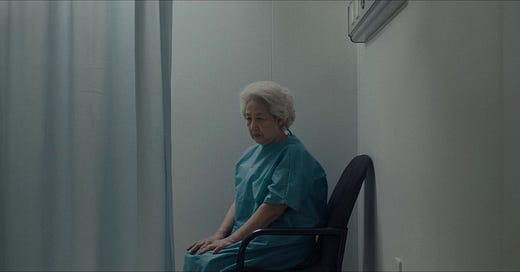


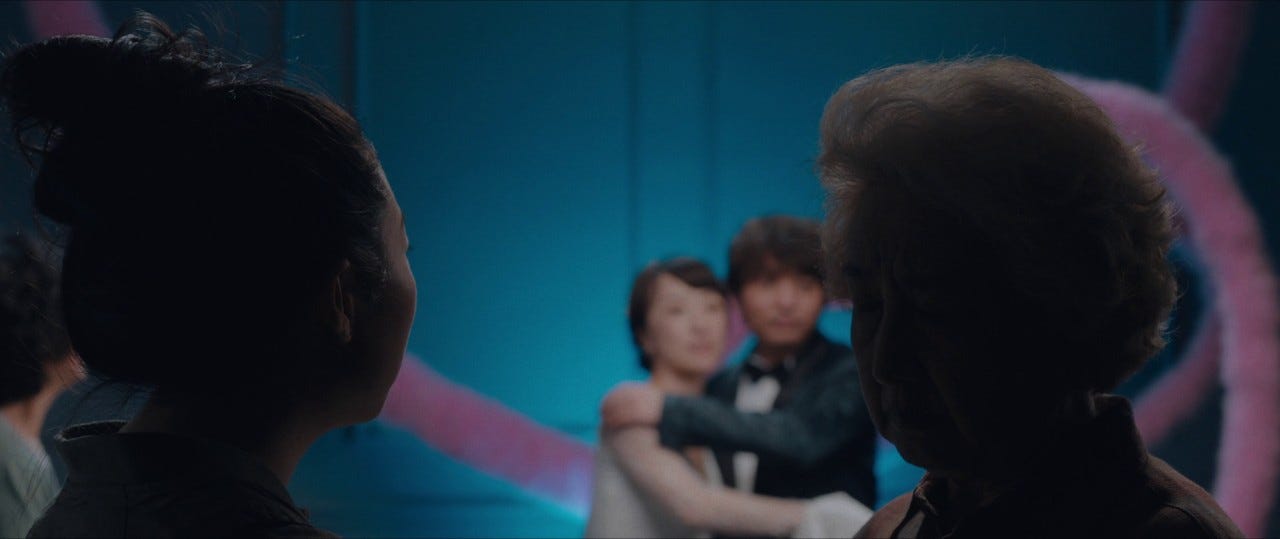
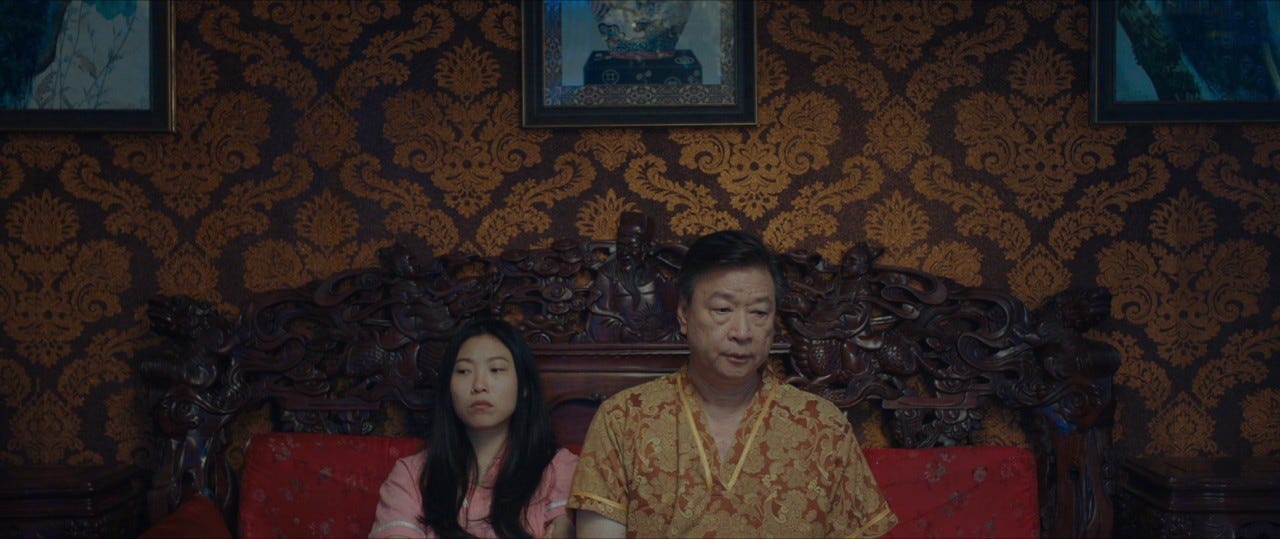
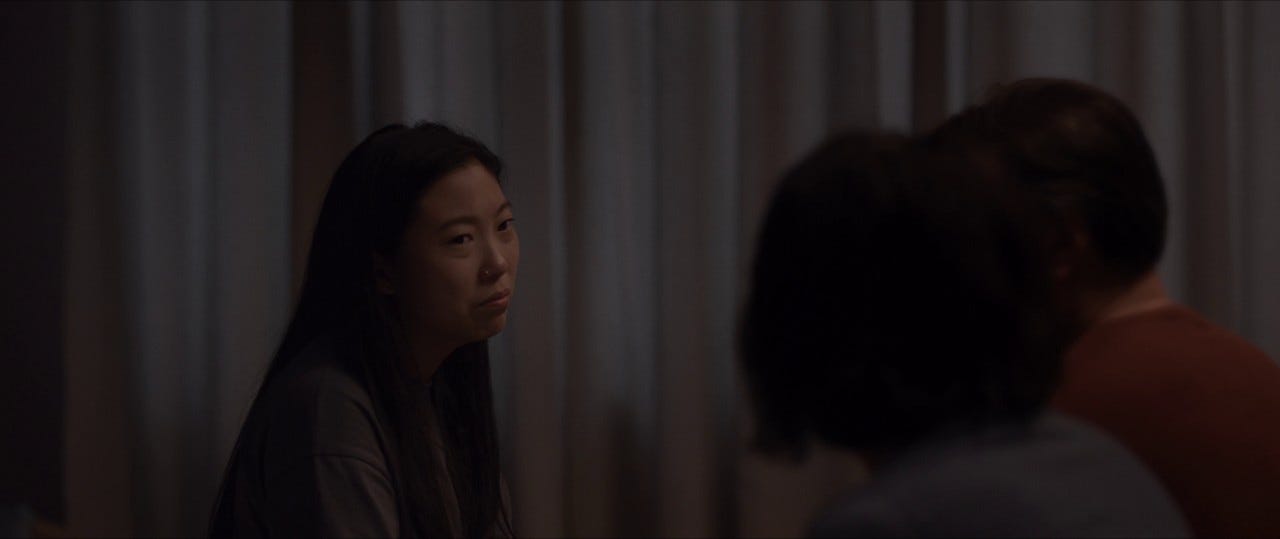
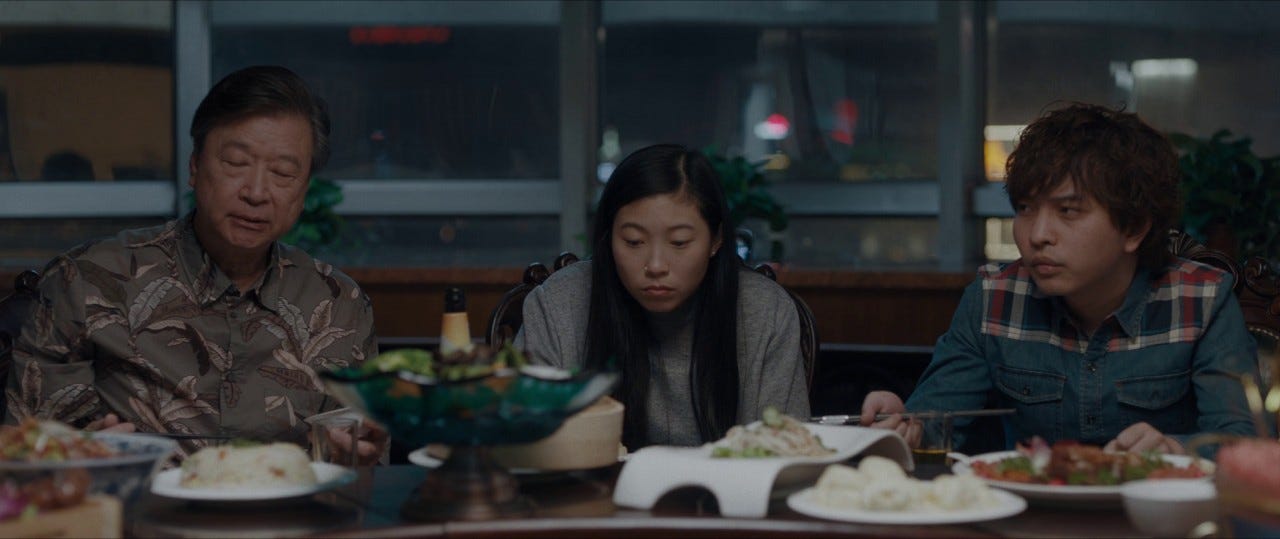
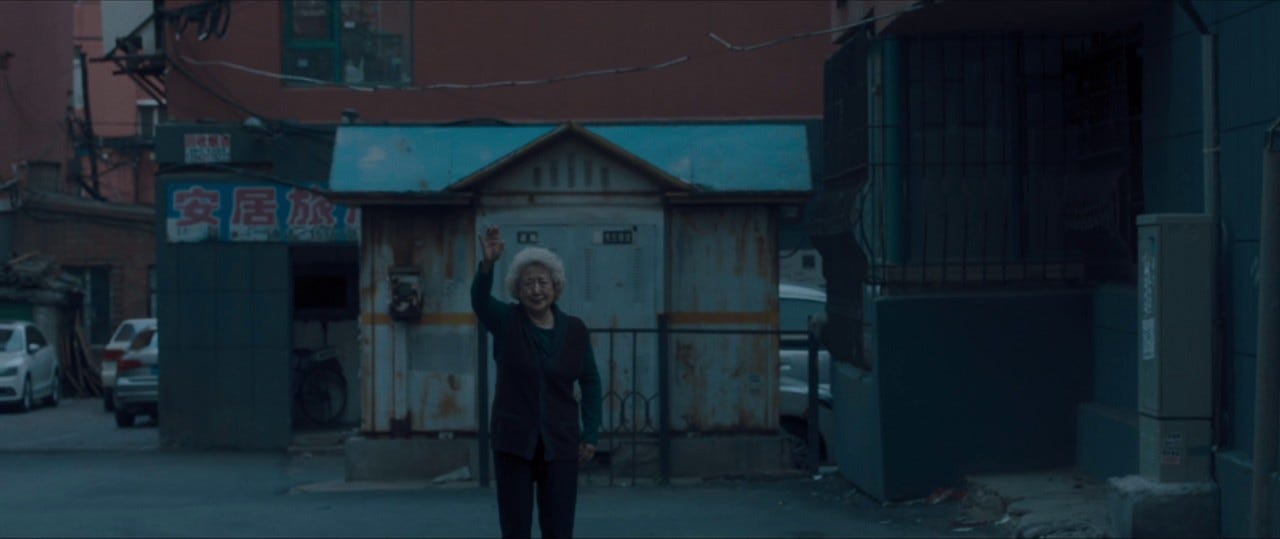
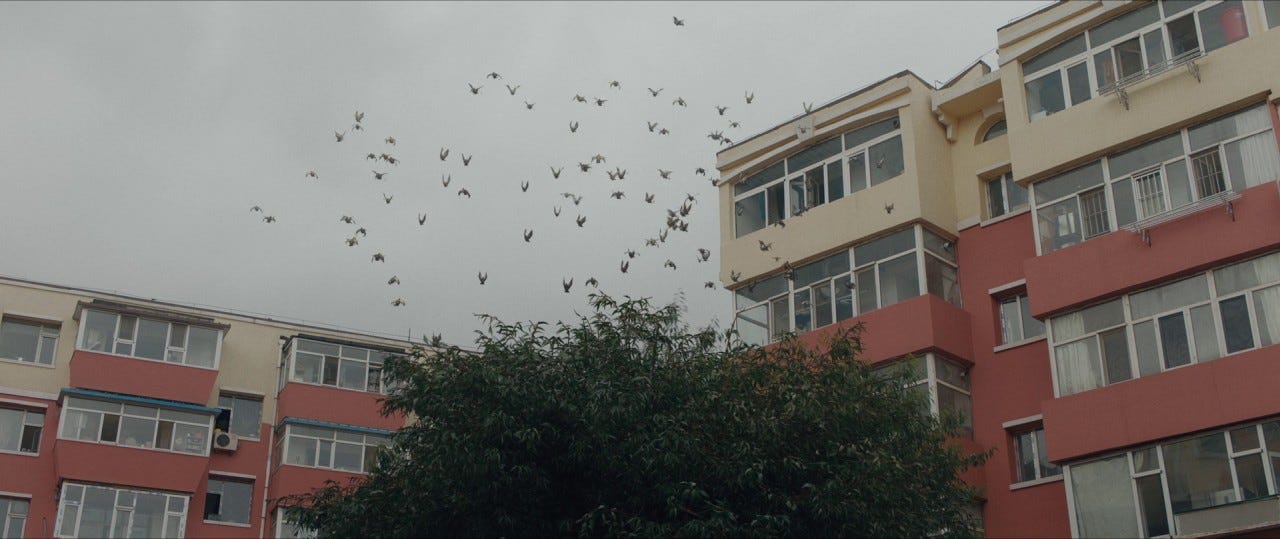

This is a beautiful reflection. This is one of my favorite films (one I regret not buying on DVD when it was at McKay's for $5 because I don't like to spend more than $2 on DVDs at McKay's). I included a line from E. Alex Jung's profile of Lulu Wang in my book. It especially hit hard as an immigrant son. There have been a lot more immigration stories—stories of culture clash—I've observed in cinema lately. Some of the best have been about the Asian-American experience (the other very famous ones, of course, are "Minari" and "Everything Everywhere All At Once.").
I like these films for the way they make you think. I think it's the same reason I love "Paterson" and "The End of the Tour," which our Dutch friend put into a film essay. I'm glad there's people that enjoy the work we do. And I'm glad you guys are putting out essays on the stories I love.
Jung's article:
https://www.vulture.com/2019/07/lulu-wang-the-farewell-profile.html
Such beautiful reflections!
“ In the end, it’s precisely what isn’t said and what stands in its place that so breaks the heart.”
Definitely would love to see the movie now.